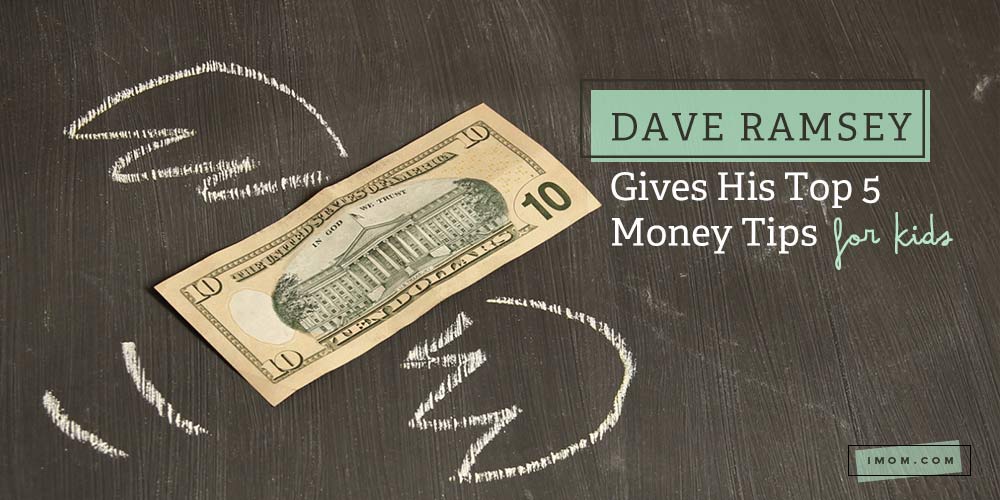Kids and money… my 13-year-old daughter surprised me this morning. She told me that sometimes when she can’t sleep and she comes downstairs to get a drink, she grabs a book from my desk. So I asked her which book she’d been reading. “Your Dave Ramsey book about money,” she said. Then when I asked her what she had learned, she actually told me one of the book’s tips about saving money—“Sacrifice now,” she said, “so that you can have a better future for your family.”
I was thrilled that she was actually interested in understanding the concepts of saving, budgeting, and giving. In fact, she made it all sound pretty simple and doable. The truth of the matter is that it’s never too early for teaching kids about money. Whether your child is 2 or 12, you can start today. Here’s are some kids and money lessons.
Money is malleable.
As parents, we want our children to realize that money is just a thing. In and of itself, it has no power. The power comes from what we choose to do with it. So when your children are little, take out a dollar and say, “Can this money do anything all by itself?” No, tell them, it can’t. “But, I can choose to spend this money for something good, can’t I?” Look for ways to show your children that the real power of money lies in the choices we make in how we use it.
Money is “growable.”
Use iMOM’s share, save, and spend jar printable to give your kids a visual for how money can grow. When they’re a little older, start a savings account for them and let them see the monthly statement. Once their money starts earning interest, explain to them how interest helps money grow.
Money is reflective.
Money reveals who you are. Now that my daughter has become interested in how money works, she shared this bit of wisdom while our family was on a drive the other night, “Dad,” she said, “let me explain to you why it’s better to use your money for an experience rather than for a car payment.”
At some point, we want our children to understand that the way we spend our money reveals what’s important to us. If we spend it all on ourselves and give none to help others, our expenditures reveal that we see our wants as more important. Or, maybe it’s not that we put ourselves first, it’s just that we haven’t come up with a budget that makes us comfortable allotting money to charity.
Money is manipulative.
Yes, that little quarter in your sweet four-year-old’s hand does have the power to manipulate her actions and choices. Let your children know that we always want to be the boss of our money, not the other way around. But be careful not to stress your kids out about their every encounter with money. And letting our thoughts constantly revolve around how to use our money wisely can become all-consuming too.
And, since we mentioned Dave Ramsey earlier, here are his top money tips for kids.
How do you teach your kids about money?









